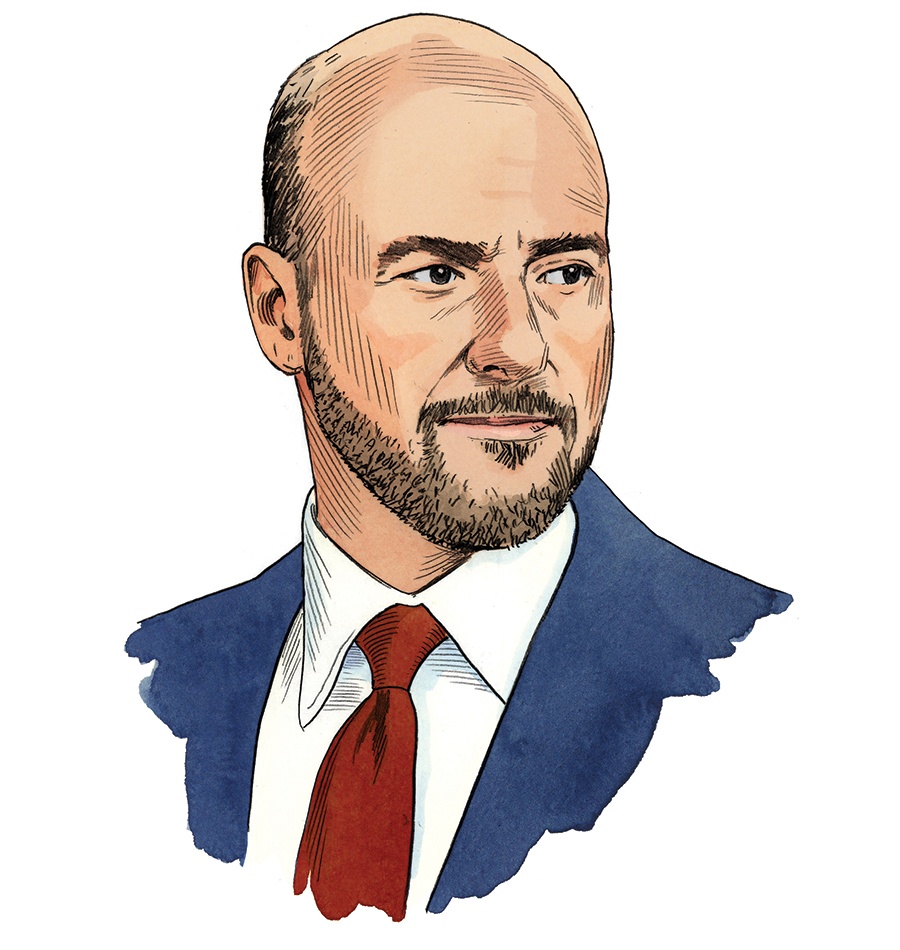Power List Q&A: U.S. Attorney, District of Massachusetts Andrew Lelling
What it's like to be a U.S. Attorney in the era of coronavirus scams.

Photo illustration by Joe McKendry
Lelling belongs near the top of this list, one local insider says, simply because he has all of the other most powerful people in Boston looking over their shoulders. To wit: He’s ensnared celebs and business titans alike in the college admissions scandal; scared politicians by indicting state Representative David Nangle for misuse of campaign funds; and rattled company CEOs by sending biotech leaders to prison for securities fraud. Some Republicans in the state dream of Lelling jumping from the U.S. attorney’s office to the governor’s office; everybody else just hopes they stay off his radar.
How do you view your place in Boston’s overall power structure?
I view myself as kind of a referee. I’m appointed, not elected. I have no ties to the state government. I’ve got more resources than anybody else. So this office takes an objective view of what it sees going on, and we’re the only ones who can do that, free of any other influence. I always tell the prosecutors in this office: “You need to do your job without fear. No one likes timid federal prosecutors; that’s not what the public is paying for.” So we take a pretty aggressive tack.
You, Attorney General Maura Healey, and Suffolk County District Attorney Rachael Rollins each have your own approaches, and there have been some clashes. Is there anything positive about having those dueling perspectives?
I think on balance, yes. Rachael and I get along great. Her philosophy on law enforcement is radically different than mine, but it doesn’t matter day to day, because the cases that she’s focusing on are not cases we do. Maura has taken shots at me in the press, but day to day, we do a lot of work with the state attorney general’s office, on sex trafficking and certain other things. It all actually kind of works.
What are you doing to keep ahead of coronavirus-related scams?
We have designated prosecutors internally to tackle these kinds of cases. We’re looking into a few: counterfeit goods, scams, fake cures, and vaccines being advertised; apps and websites that are really just seeking to steal your personal information; hoarding, meaning hoarding on an industrial scale, not putting a lot of toilet paper in your closet; and price gouging. People who are callous enough to attempt to exploit others in the midst of a crisis for their own personal gain, I find that appalling.
How does the pandemic complicate your work? Economic problems and isolation can both stir up more crime and make it more difficult to find and prosecute it.
I agree completely. How much will crime go up because you don’t have federal agents running around looking for gang activity? How much of the criminal justice system can you do by video conferencing? I think you will see lingering changes even when the shutdown lets up, but I don’t know exactly what those are going to be.


